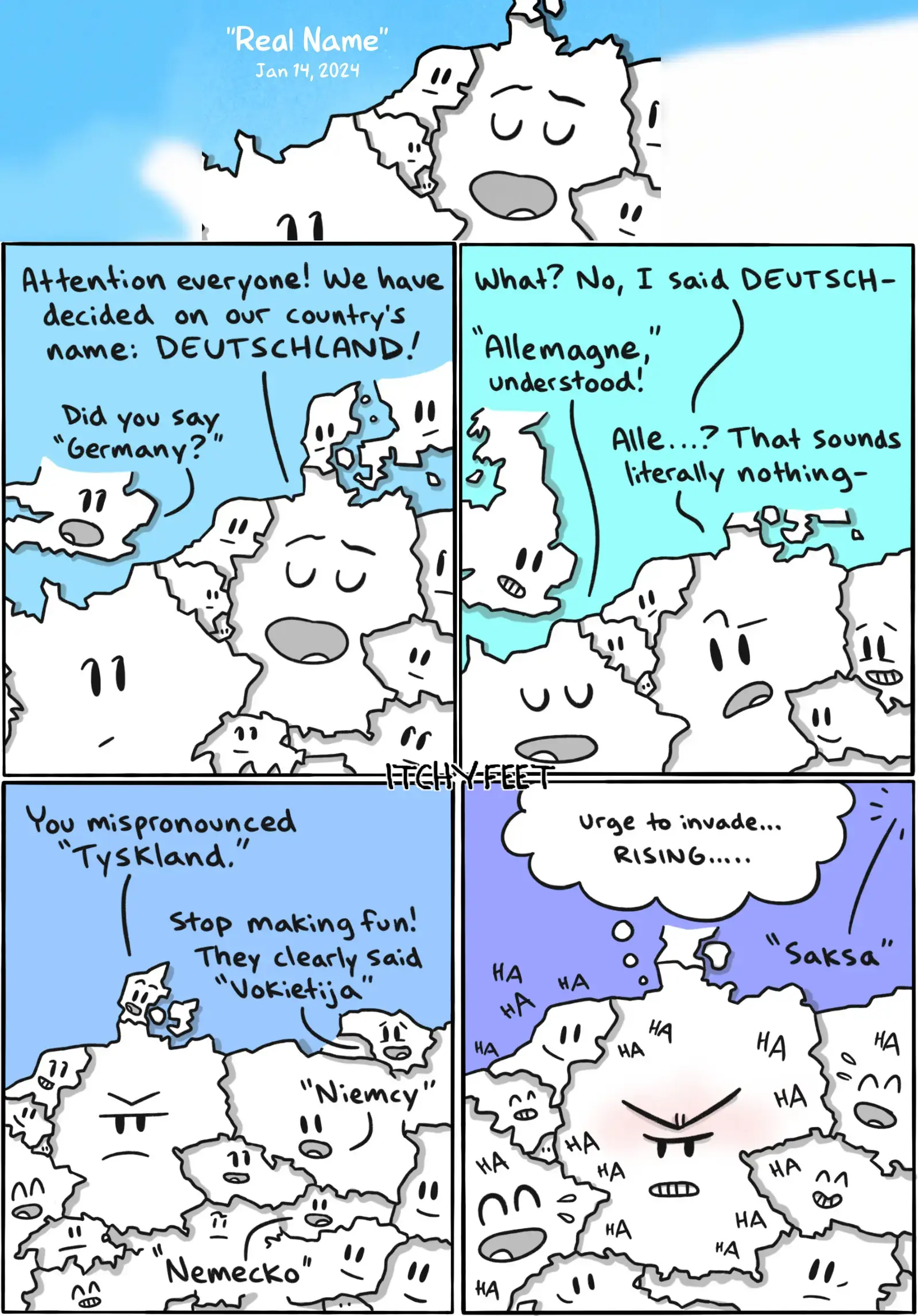Finland saying "Saksa" from a distance made me chuckle.
Some etymologies:
- French "Allemagne", Spanish "Alemania" - from the Alemanni tribe. English also attests "Almayne" in a few older texts. I'm not too sure but I think that most descendants of that tribe don't even live in the Republic of Germany, but rather in Switzerland and Alsace.
- Finnish "Saksa", Estonian "Saksamaa" - from another tribe, the Saxoni.
- English "Germany", Italian "Germania" - borrowed from Latin. Beyond that the etymology is a bit messy; Julius Caesar for example uses "germanus" in De Bello Gallico to refer to non-Gaulish tribes, but we don't know if it was a generic term or the name of one of the tribes.
- Polish "Niemcy", Slovakian "Nemecko" - from Proto-Slavic *němьcь "foreigner, German". The word is derived from *němъ "mute"; likely the result of an "if you don't speak our language might as well not speak at all" mindset.
- Danish "Tyskland" - "tysk" (German) was borrowed from Old Saxon, and backtracks to Proto-Germanic *þiudiskaz (of the people). So it's an actual cognate of German Deutschland, or the Italian adjective "tedesco". Confusingly enough, the country itself can be called either Germania or Repubblica Federale Tedesca in Italian.
